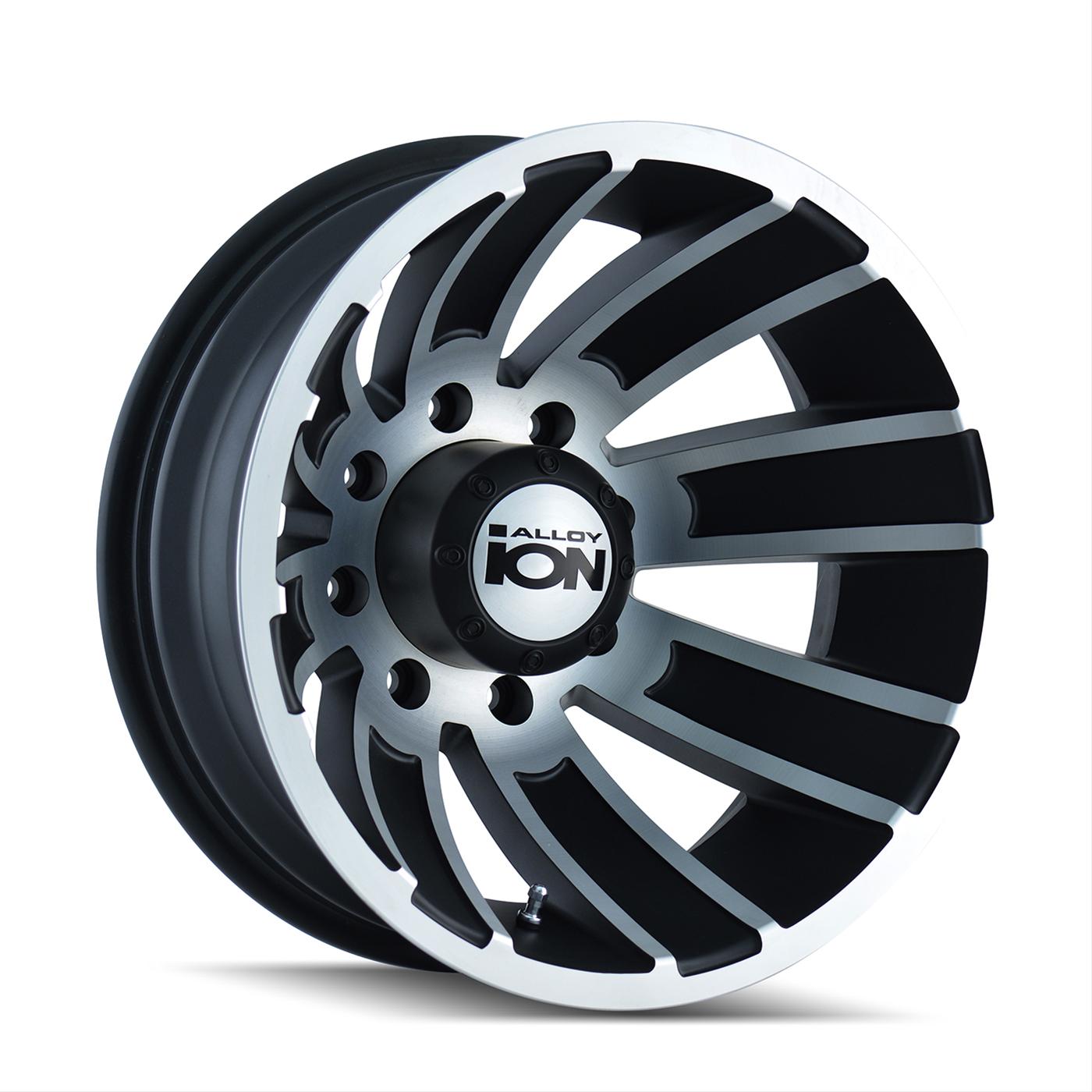Ion Dually Wheels Related Keywords amp; Suggestions Ion Dually Wheels
16 Inch Alcoa Dually Wheels - A wheel is really a circular component that is supposed to rotate while on an axle bearing. The wheel is good reasons aspects of the wheel and axle which is probably the six simple machines. Wheels, together with axles, allow heavy objects to remain moved easily facilitating movement or transportation while supporting a large quanity, or performing labor in machines. Wheels also are put to use in other purposes, for example a ship's wheel, steering wheel, potter's wheel and flywheel.Common examples are only in transport applications. A wheel greatly reduces friction by facilitating motion by rolling together using axles. In order that wheels to rotate, some time has to be applied to the wheel about its axis, either because of gravity or by the employment of another external force or torque.The English word wheel arises from the Old English word hweol, hweogol, from Proto-Germanic *hwehwlan, *hwegwlan, from Proto-Indo-European *kwekwlo-, a longer variety of the cause *kwel- "to revolve, move around ".Cognates within Indo-European include Icelandic hjól "wheel, tyre", Greek κύκλος kúklos, and Sanskrit chakra, the second both meaning "circle" or "wheel ".Precursors of wheels, named "tournettes" or "slow wheels", were known around the Middle East via the 5th millennium BCE (one of the first examples was discovered at Tepe Pardis, Iran, and dated to 5200–4700 BCE). Just read was made from stone or clay and secured to the floor with a peg while in the center, but required effort to turn. True (freely-spinning) potter's wheels were apparently in use in Mesopotamia by 3500 BCE even around 4000 BCE, as well as oldest surviving example, sega's located in Ur (modern day Iraq), dates to approximately 3100 BCE.
The earliest proof of wheeled vehicles appears in your other half on the 4th millennium BCE, near-simultaneously in Mesopotamia (Sumerian civilization), the Northern Caucasus (Maykop culture) and Central Europe (Cucuteni-Trypillian culture), so the question which culture originally invented the wheeled vehicle continues to be unsolved.The initial well-dated depiction of any wheeled vehicle (here a wagon — four wheels, two axles) is around the Bronocice pot, a c. 3500 – 3350 BCE clay pot excavated during a Funnelbeaker culture settlement in southern Poland.The oldest securely dated real wheel-axle combination, that from Stare Gmajne near Ljubljana in Slovenia (Ljubljana Marshes Wooden Wheel) becomes dated in 2σ-limits to 3340–3030 BCE, the axle to 3360–3045 BCE.2 kinds of early Neolithic European wheel and axle are known; a circumalpine type of wagon construction (the wheel and axle rotate together, for example Ljubljana Marshes Wheel), thinking that of this Baden culture in Hungary (axle does not rotate). They both are dated to c. 3200–3000 BCE.In China, the wheel was certainly present when using the adoption of your chariot in c. 1200 BCE,although Barbieri-Low[9] argues for earlier Chinese wheeled vehicles, c. 2000 BC.
Related Images with Ion Dually Wheels Related Keywords amp; Suggestions Ion Dually Wheels
17 inch Black Wheels Rims Chevy Dodge RAM HD 2500 3500 8 Lug Truck
CHEVROLETSILVERADO350017INCHALCOAREAR22791555NEEDSREPAIR
16 Alcoa Wheels Related Keywords amp; Suggestions 16 Alcoa Wheels Long
Alfa img Showing gt; Dually Rims 16
| TITLE: | Ion Dually Wheels Related Keywords amp; Suggestions Ion Dually Wheels |
| IMAGE URL: | https://static.summitracing.com/global/images/prod/xlarge/twg-166-6670rmb_xl.jpg |
| THUMBNAIL: | https://tse3.mm.bing.net/th?id=OIP.2GrXqNPftx_75tdihGPewAEsEs&pid=Api&w=180&h=181 |
| IMAGE SIZE: | 128316 B Bs |
| IMAGE WIDTH: | 1400 |
| IMAGE HEIGHT: | 1400 |
| DOCUMENT ID: | OIP.2GrXqNPftx_75tdihGPewAEsEs |
| MEDIA ID: | A7F95A219E0C04375E613F019E58B76B40D366A8 |
| SOURCE DOMAIN: | keyword-suggestions.com |
| SOURCE URL: | http://www.keyword-suggestions.com/aW9uIGR1YWxseSB3aGVlbHM/ |
| THUMBNAIL WIDTH: | 180 |
| THUMBNAIL HEIGHT: | 181 |
Komentar
Posting Komentar